Champions of Change Blog
Technology-Enabled Volunteers Ending Hunger and Food Waste in Austin
Posted by on August 14, 2013 at 3:19 PM EST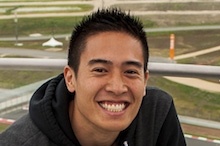
George Luc is being honored as a Champion of Change for applying his tech skills for civic good.
I believe that if you show people the problems and you show them the solutions they will be moved to act. - Bill Gates
Eleven months ago I set out to build a platform that would encourage everyone in the world to volunteer. Together with my co-founder, James McGirr, we created GivePulse, a social network that matches people in our community with causes they care about while enabling easy organization, management and mobilization of volunteers and supporters. From day one our mission has been to solve tough social problems through the use of technology. Keeping true to our mission, today our civic engagement platform supports hundreds of causes and universities such as the University of Texas at Austin and St. Edwards University.
Through our partnership with St. Edwards University, I was introduced to David Waldron, VP of IT at St. Edwards University, and Claire Dunn, Coordinator of IT Communications. Our discussions led to many collaborative opportunities that sought to improve the Austin community. One prominent opportunity ignited our excitement, a civic hackathon hosted by St. Edwards University to enable local technologists to hack for Austin causes.
The National Day of Civic Hacking provides the ideal atmosphere for connecting people with technological needs (for nonprofits and for social good) with programmers and hackers that can provide solutions. At the ATX Hackathon for Change 2013 a passionate social activist explained his problem and inspired us to act.
To kick off the event, representatives from local groups and causes started pitching their technical challenges. Hackers, social entrepreneurs, volunteers, supporters, reporters -- everyone was there. On one of the last pitches, James and I looked at each other and we knew we had found our match. The person pitching was Randy Rosens, founder of Keep Austin Fed. He gave a compelling and passionate 60-second pitch about ending hunger and food waste. Randy explained how he wanted a better online calendar for scheduling volunteers to rescue fresh healthy food and deliver it to specific charities. However, it immediately occurred to us that it wasn’t just a calendar that would solve the problem, it had to be a simple way for food donors to contact volunteers to rescue food before it was thrown away and wasted.
After learning more about Keep Austin Fed’s needs we realized that what he had proposed as the hack was only a small piece of the whole solution. It was time to bring his organization into the 21st century.
The ideal solution required a number of moving parts. We would need to create a website for Keep Austin Fed, a texting service for restaurants to communicate with volunteers, and a backend reporting system for Keep Austin Fed to manage and keep track of all of the transactions, volunteers and donations.
During the two day event we built and designed the website (hosted by Rackspace, one of the event sponsors) enabling food donors, such as restaurants and bakeries, recipients, such as shelters and charities, and volunteers to join a Mobile Texting Food Rescue Service that we built using Twilio (another of the event sponsors). The way our solution works is that after food donors are approved, they are given a unique donor code and are told to text a phone number with their code, followed with a brief description of the food they need rescued. Keep Austin Fed then mobilizes available volunteers to deliver the meals to those in hunger. All the data about donors, volunteers, recipients, and the communication of how much food is rescued, where it was delivered, and who delivered it, is tracked automatically with the integrations between the website, Twilio and the backend system (SugarCRM).
After spending countless hours coding and drinking coffee interspersed with energy drinks you would think that our mental and emotional state would have begun to decline. That just wasn’t the case. As we saw our efforts and hard work begin to coalesce into a fully functional solution for Keep Austin Fed, our energy levels and excitement continued to grow. As a matter of fact, during the hackathon Keep Austin Fed and the service we created was able to help rescue over 500 meals to provide hunger relief for hundreds of Austinites in those two days alone.
As we reflect upon the hackathon, our mission to promote works of social good through technology was fulfilled. Every week, we directly and indirectly feed hundreds of hungry Austinites and save tons of food from the dumpster. If two hackers are able to make such an impact in just 48 hours, think how powerful it could be with an army of hackers!
Thank you, White House, for making this possible. Thank you, St. Edwards University, for bringing the National Day of Civic Hacking to Austin. Thank you, Randy and the Keep Austin Fed family, for believing in us. And thank you, Austin, for providing a home and platform to end hunger and food waste here in the Lone Star State and beyond.
The Civic Hackathon is over. But to end hunger, food waste and empower social good at a massive scale, our hacking must continue. Hack On!
George Luc is the Co-Founder and CEO of GivePulse
Learn more about TechnologySaving Lives in the Developing World through Sustainable Technology Solutions
Posted by on August 14, 2013 at 3:04 PM EST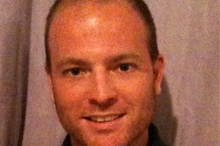
Craig Michael Lie Njie is being honored as a Champion of Change for applying his tech skills for civic good.
It is an incredible honor to be recognized as a White House Champion of Change. I hope that my story inspires others to work to solve the world's hard problems through sustainable technology solutions.
I believe deeply in the idea that technology, even basic technology, can be built and deployed to help with some of the most pressing needs of the developing world. I also believe that for those like myself that have been given incredible opportunities, we also have deep responsibilities to give back to lose less fortunate whenever and wherever possible -- to constantly strive to leave the world a better place than we found it.
However, technology solutions alone are not enough -- those solutions must also be long-term sustainable.
I was given the name Lie Njie as an honorarium for my service as a Peace Corps Volunteer in The Gambia, West Africa, from 2005-2008. When I arrived, those seeking advanced technology education had no options other than to leave the country. Most of those who were lucky enough to leave never came back, a terrible example of "Brain Drain". So I designed, deployed, and taught the first two years of The Gambia's first Bachelor's in Computer Science at the University of The Gambia (UTG).
The success story isn't about my initial efforts -- the real success is that, eight years later, the Bachelor's in CS program is still sustainable—a direct result of the work of The Gambians who took ownership of the program. I was merely the initial catalyst.
It was in The Gambia when I met Amran Gaye -- one of the smartest people I've ever known. He is a brilliant high school graduate who had taught himself programming, networking, and system administration over a brutally slow internet connection. He remains my daily reminder that intelligence and ability are born everywhere, the only geographic differences are in the opportunities available.
I began mentoring Amran and appointed him as the first Teaching Assistant for my new BS in CS major. Amran leveraged that experience to win a CS scholarship to the University of Maryland.
In May of 2013, I told Amran about the Peace Corps Innovation Challenge, and the June 1-2 National Day of Civic Hacking. Amran eagerly offered to help with the hackathon as a way to give back to the Peace Corps, and help solve a problem endemic to developing countries worldwide, including The Gambia, his homeland. We chose a Peace Corps Innovation Challenge posted by Aimee, a Peace Corps Volunteer in South Africa. We call it MedLink.
MedLink is more than just a good innovation challenge: Amran's sister, Jatou, is currently a nurse in a rural area in Gambia who struggles daily with medical inventory control and distribution of supplies and services to the people who need them. Because delivery of medicines to health centers are irregular and unpredictable, people in need currently have to travel daily for many hours just to check if the medicines they need have arrived. Often they are told to come back the next day, or to try another health center that might be hours or days travel away. This puts those in need at risk when they are unable to get the urgent medical supplies they need, when they need them.
Amran and I linked up with Daniel, Nancy, Suri, and Mikhail at the San Francisco hackathon, where we designed the initial architecture for MedLink, a tool for those in need of medical supplies in rural areas of developing countries, saving time, money, and travel distance - in some cases literally saving lives. MedLink's SMS, Web, and Email tools enable those in need who have nothing more than a simple cellphone to make requests for what they need. SMS -- Simple Messaging Service -- is available on nearly every cellphone in the developing world. In the developing world, SMS-enabled cellphones are nearly everywhere: some developing countries have more active SMS-enabled cellphones than people!
After the San Francisco hackathon, Amran then recruited Latirr, Serign, Rachel, Ala, and Fatou to help further develop MedLink during the June 18-19 Random Hacks of Kindness hackathon event in The Gambia. It was this follow-on step that was the key to MedLink's sustainability: this became more than just a weekend hackathon project, this was now the start of a long-term project from a team of volunteers world-wide to help to connect medical supplies and services to those in need.
We've built the initial version of MedLink with a constant eye towards sustainability and extensibility, and will begin testing in The Gambia and South Africa. However, the real success will come only if we make the system long-term sustainable. This will require more than just technology development skills.
MedLink's success is not my own, it's the combination of efforts from Amran and the rest of the team. My success was in inspiring them to help with the project and in keeping the energy levels up and the focus sharp. The team's success is that the system is built with extensibility in mind, with a world-wide focus, and a strong drive for sustainability built in from the start.
Craig Michael Lie Njie is founder and CEO of Kismet World Wide Consulting
Learn more about TechnologyLower the Murder Rate with Crowd-Powered Conflict Mediation
Posted by on August 14, 2013 at 2:05 PM EST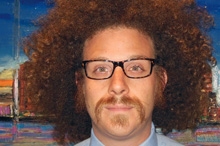
Travis Laurendine is being honored as a Champion of Change for applying his tech skills for civic good.
We used the platform of the National Day of Civic Hacking to try and put a dent in one of New Orleans’ most important problems: a high murder rate. For my entire life, I have always lived around this problem, but it never came closer to me than on Mother's Day when nearly 20 innocent people were shot at a parade. It happened on my street and my father and I nearly stopped off at the parade on the way to my Mom's celebration. I could have been there... and many of my friends actually were! The next day I walked down the street to the gathering the Mayor had arranged. Talking with the mayor (and Idea Village CEO Tim Williamson) spurred the idea of an anti-murder hackathon. The National Day of Civic Hacking seemed like the perfect opportunity.
I've had a great deal of success with hackathons in New Orleans. They were so successful that local people basically thought I invented the concept (obviously not the case!). However, when I launched the Hack the Murder Rate campaign, I was met with quite a bit of online resistance—people who were somehow against the idea (or name) of “Hacking” the Murder Rate. These people took to twitter to slam the idea and they surely decreased the turnout for the hackathon. One went so far as to make a parody website. Initially, I was angry about this but I was reminded of Ghandi's quote "First they ignore you, then they laugh at you, then they fight you, then you win."
Well, we went ahead and made an app and now, with going to the White House, I can't help but feel like a winner.
The story of the app is that I sought out people on the front lines of the murder problem to see what they did to combat this problem and to protect their loved ones. Thanks to my career in hip hop concert productions, I have a good deal of rapper friends who live on the front lines. One of them, Skip, told me a story about a "beef" that he "squashed" just a week prior. The key element to this peaceful resolution was that he was the person who was trusted by BOTH people in the conflict, and seen as an “OG” (“original gangster”) in the community. He realized that he was the only person in a position to mediate the conflict and so he did it himself. What I realized was that we could design a system that used information technology to scale this process. This, coupled with the fact that nearly 60% of murders with known causes stem from prior conflicts, meant that if we could scale up the mediation happening in the city, we really could hack the murder rate.
At the event (hosted by the lovely Willow of Geeks without Bounds) we amassed an all-star team. George Mauer and Justen Martin helmed the programming, Bill Brown and Julie Green did the design, and Wade Kodrin (Army conflict veteran in the Afghan and Iraq Wars) and Michelle Calabro helped visualize the data and define our "customer" flow. Tyronne Walker from NOLA 4 Life came by to help make sure we were working in the right direction and then he invited us to their midnight basketball tournament to get our first users and get their feedback.
The first part of the app is anonymous "beef" reporting. This is the web compliment to the anonymous phone beef reporting service that already exists. We ask for certain identifiers such as name, neighborhood, and Twitter or Facebook profile name. We then match that information against the combined network of all of the OG's that we register in the city. This can be rappers, business owners, preachers, or others respected in the community. When a "beef" is submitted we then search to find a matching OG who has that person in their network. From that point we will work with NOLA 4 Life to help mediate the conflict and bring it to a peaceful resolution.
The app still has a long way to go, but our mission to create the initial prototype in a weekend was fulfilled and hopefully this White House honor will help us get the funding needed to bring a more complete version out to the world.
Travis Laurendine is the founder and CEO of LA Labs.
Learn more about TechnologyCommunity Emergency Network
Posted by on August 14, 2013 at 1:05 PM EST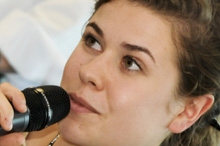
Caitria O’Neill is being honored as a Champion of Change for applying her tech skills for civic good.
I’m the CEO of Recovers, a disaster preparedness and recovery technology company based in San Francisco. We help communities, local government, and insurance agencies mitigate risk and recover from disasters.
I was standing in the front yard of my home in Monson, MA when a twister swept through town in June of 2011. The EF3 tornado scraped up whole neighborhoods and left my own home uninhabitable. In the aftermath, my sister Morgan and I got involved connecting local volunteers and donation offers to neighbors with needs at the First Church of Monson. Our seat-of-the-pants system for volunteer and case management was rough, but thanks to the work of many dedicated local leaders, it was able to meet needs no other organization could respond to.
What we accomplished in Monson isn’t unusual. In every area, after every disaster, ordinary people want to get involved putting their communities back together. But instead of stopping with Monson’s recovery, Alvin Liang, Morgan O’Neill, Chris Kuryak and I tried to scale what worked. We’ve spent the past two years turning best practices in local preparedness and recovery into an easy-to-use software toolkit for communities. From suburban Texas to Moore, OK, we’ve helped hundreds of thousands of people find information, aid, and ways to pitch in.
Technology is only part of the problem we’ve addressed. Many barriers to local participation are institutional. Large aid organizations are accustomed to sending people home in order to protect both volunteers and first responders. That makes sense for large organizations with big budgets. But if there is only about a week of media interest, and all local responders are sent home in that time, the community has no resource pool to draw upon in later recovery. By giving residents tools and permission to start organizing, we’re giving them a head start on recovery.
Making cleanup more efficient post-disaster is just the beginning; we are working to reduce the damage disasters cause. When working with communities before disasters, we focus on creating a community emergency network of neighbors that can respond to events of any size. While traditional preparedness focuses on individual households, we believe risk and resources should be measured as a community. After all, a single generator can power dozens of cell phones in an outage, and a single blocked storm-drain can flood a dozen houses.
We are proud to be honored as White House Champions of Change. We are happy to be able to support the amazing men and women working in recovering communities across the United States, and we are excited to support the next generation of community preparedness.
Caitria O’Neill is a co-founder of Recovers
Learn more about TechnologyNew Thinking through New Tools and Techniques for Engagement
Posted by on August 14, 2013 at 12:02 PM EST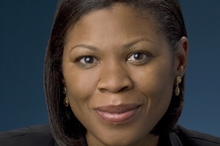
Anita Brown-Graham is being honored as a Champion of Change for her efforts in making government more transparent and accountable through technology.
In the face of serious economic and social challenges, growing national polarization continuously threatens devastating gridlock. Each day seems to bring new indications of our dysfunction at discourse.
When I joined the Institute for Emerging Issues (IEI) at North Carolina State University in 2007, I looked forward to bringing together the state’s leaders from all sectors, regions and points of view. Founded by former North Carolina Governor Jim Hunt, IEI had earned a strong reputation for its efforts to focus the state on matters important to its continued competitiveness. The organization sought to extend North Carolina’s rich tradition of boundary-crossing leadership - a tradition credited with transforming the state’s economy and quality of life over a 50 year period.
However, there were troubling indications that North Carolina faced a civic engagement crisis. By 2010, our state ranked 42nd in the nation for volunteering, 44th for participation in non-electoral policy activity (such as public meetings), and 39th for group affiliation/membership. Without reclaiming the ability to engage and collaborate, North Carolina was on course to lose the voices of too many of its people as leaders shaped their future.
IEI needed to respond to this crisis, but we could not act alone. We reached out for the wisdom of hundreds across the state. With their contributions of content, design support, software innovations and funding, we created the Emerging Issues Commons - a first of its kind engagement tool - both a physical space and an online hub that is today transforming how citizens across the state connect with each other, access information, and take collaborative action on important issues.
The citizens of the state asked us to replace charts and graphs with interactive tools that visualize more than 100 county-level data points on the economy, education, health and the environment. They told us they wanted to see the connections among challenges, be able to compare challenges across different geographies, and to have data curated in ways that offered greater insight into the issues.
Our citizen advisors wanted also to have big challenges humanized through short videos, and to be able to add their own ideas for solving challenges. They asked that others be able to rate and rank ideas and add opinions on how to make them stronger. Finally, they insisted that the Commons content be available online 24/7.
Despite indications of permanent disengagement, North Carolinians made clear that they would participate at higher levels if given an opportunity for meaningful engagement and resources to support their efforts. What they needed? New thinking through new tools and techniques for engagement.
Anita Brown-Graham is Director of the Institute for Emerging Issues (IEI) at NC State University
Learn more about TechnologyOpen Communities and New Voices: Let’s Be Neighbors
Posted by on August 14, 2013 at 11:23 AM EST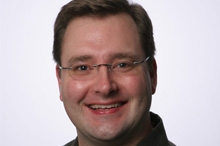
Steven Clift is being honored as a Champion of Change for his efforts in making government more transparent and accountable through technology.
Imagine. I am standing on my front porch in Minneapolis, trying to speak out to my neighbors:
“Yes, I love the idea of starting a community garden. Let’s meet.”
“Councilmember, what more can we do to get the FAA to respond to our complaints about dramatic airport noise increases in our neighborhood?”
“My neighbor, an Iraq vet, heard five shots and ran to the victim in the street as he lay dying. I never want to see a sobbing, collapsing mother need to come to a crime scene again.”
“Let’s have a “Community Eat-up” and support that new Salvadoran restaurant in our neighborhood. Who will join us?”
“Great. So glad you found seven neighbors to quickly bake those lasagnas for your friend’s memorial service today.”
“I found a lost puppy …”
If it was before 2008, these real examples would have remained unheard across my neighborhood.
Imagine being connected to over 1,000 of your neighbors via an online public space for community exchange (that’s 25% of households in my neighborhood). You are able to connect with local elected officials who represent you, small business owners and workers, and local civil servants and community groups. Everyone who cares about your local community is welcome.
This is my own Standish-Ericsson neighborhood today – connected, vibrant, inclusive, and building community every day.
Today, E-Democracy’s BeNeighbors.org effort connects well over 15,000 people mostly in the Twin Cities across a network of dozens of online Neighbors Forums. Our lessons and assistance are available for networks everywhere.
Led by volunteers in each neighborhood and powered by open source technology, we are working to build bridges across race, income, generations, immigrant and native-born, and more. Thanks to the Knight and Bush foundations and other donors, our dedicated outreach team, including recent refugees and immigrants, even go door to door in St. Paul.
Our view - Every neighborhood should be connected using whatever technology works for them.
The opportunity of a generation is to reach and connect all kinds of people, far more than those who traditionally show up.
Join the evolution.
Helping puppies one day and debating the intricacies of FAA flight rules the next in the same online space is built on two decade of direct experience.
We have lessons to share along with a passion to learn about your ideas and innovations. I helped launch the world’s first election information website in 1994 with Minnesota E-Democracy. I led early e-government efforts in Minnesota. I've presented in 30 countries concerning open government and civic technology.
Some top lessons include:
1. Activate Groups - “The most democratizing aspect of the Internet is the ability for people to organize and communicate in groups.” From my 1998 “Democracy is Online” article.
2. Give Notice – Timely notification of new government information and meetings is empowering.
3. Go Local – Local is the public life building block where people naturally connect across many differences in the common interest.
4. Build Power - Real people with real names generate agenda-setting power and influence elected officials - particularly if it is clear that you are among their voters.
5. Be Public - Public civic engagement is key, not just personal Facebook relationships where local politicians and community insiders connect privately based on existing trust and hierarchy.
6. Defend the Commons - Loudest harsh voices and partisan vitriol threaten our efforts to build viable civic online public spaces built on civility and tolerance.
7. New Challenges - Local online groups remove the communications barrier and empower problem-solving “ad-hocracy” inspired by new ideas and newly active citizens.
8. Inclusion Matters – The PewInternet.org “Civic Engagement in the Digital Age” reported that the same kinds of people dominating off-line politics are dominating online. To make a difference, we must successfully reach new voices and make participation far more representative and inclusive.
9. All Blocks – Gather the digital contact information – email, mobile, etc. – of your 20 nearest neighbors and share it back. You can do it. It starts with you. Private spaces make sense among nearest neighbors, but for larger areas avoid gated communities.
10. Got Neighbors? – A national directory and educational campaign could bring millions more into community life and local democracy online. If you happen to live at 1600 Pennsylvania Avenue, going door to door to your 20 nearest neighbors might be a bit of a challenge. So, I have a slightly different idea for you. Give me a jingle.
Steven Clift is the Co-Founder of E-Democracy
Learn more about Technology
- &lsaquo previous
- …
- 46
- 47
- 48
- 49
- 50
- 51
- 52
- 53
- 54
- …
- next &rsaquo
White House Blogs
- The White House Blog
- Middle Class Task Force
- Council of Economic Advisers
- Council on Environmental Quality
- Council on Women and Girls
- Office of Intergovernmental Affairs
- Office of Management and Budget
- Office of Public Engagement
- Office of Science & Tech Policy
- Office of Urban Affairs
- Open Government
- Faith and Neighborhood Partnerships
- Social Innovation and Civic Participation
- US Trade Representative
- Office National Drug Control Policy
categories
- AIDS Policy
- Alaska
- Blueprint for an America Built to Last
- Budget
- Civil Rights
- Defense
- Disabilities
- Economy
- Education
- Energy and Environment
- Equal Pay
- Ethics
- Faith Based
- Fiscal Responsibility
- Foreign Policy
- Grab Bag
- Health Care
- Homeland Security
- Immigration
- Innovation Fellows
- Inside the White House
- Middle Class Security
- Open Government
- Poverty
- Rural
- Seniors and Social Security
- Service
- Social Innovation
- State of the Union
- Taxes
- Technology
- Urban Policy
- Veterans
- Violence Prevention
- White House Internships
- Women
- Working Families
- Additional Issues

